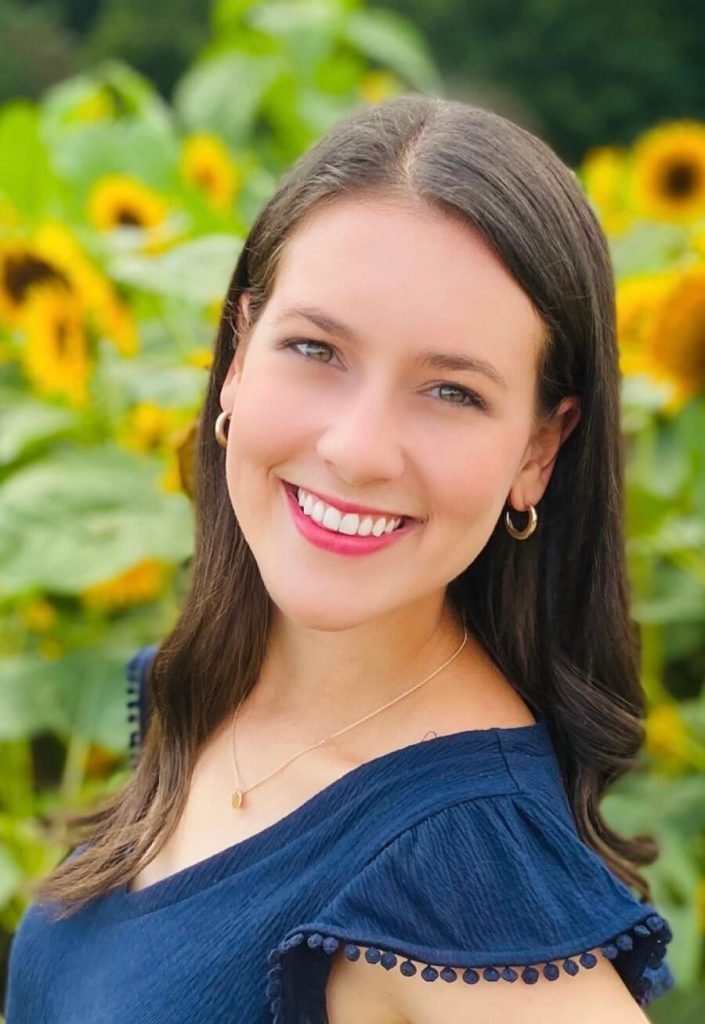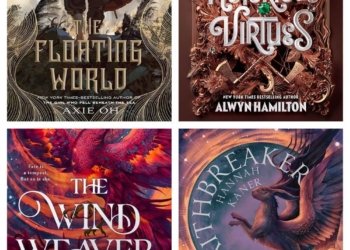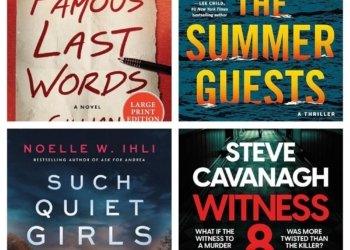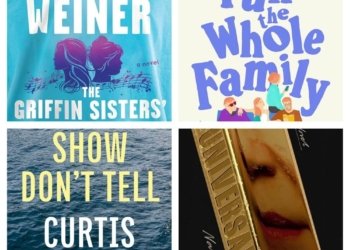No products in the cart.
A Conversation with Alison Schaffir, a Young Adult Author
Alison Schaffir, a young adult author of debut novel, Your Dream for Me, living in New York City.
1k
SHARES42k
VIEWSAlison Schaffir is a social media strategist and young adult author living in New York City. A lover of contemporary fiction, Alison developed her debut novel, Your Dream for Me, fusing two of her favorite interests, fashion and theater, together. She graduated from University of Richmond with a major in business marketing and a minor in psychology. When she’s not making up stories in her head, she loves indulging in Trader Joe’s lava cakes, belting early 2000s pop hits, and spending time with her friends and family.
Let’s get started with a quick rapid fire.

Q1. If you could be transformed into one mythological creature, which one would you choose?
A mermaid or a unicorn.
Q2. What time do you usually go to bed at night?
Usually around 12-12:30 A.M. I’m a bit of a late night owl!
Q3. What are the least-likely three words someone would use to describe you?
Grumpy. Pessimistic. Cruel.
Q4. Where did you go on your last vacation?
San Diego, California.
Q5. Would you rather find your dream job or win the lottery? You can’t do both.
Find my dream job. I’d rather have a sense of purpose than just money.
Q6. What is one thing you regret spending money on?
My 7th grade haircut with bangs that got in my eyes.
Q7. What object do you misplace or lose the most?
A toss-up between my keys and the TV remote.
Q8. If you were a spy, what would be your codename?
I’m going to combine my favorite color with my former street name: Turquoise Evelyton.
Q9. What secret about the universe would you most want to learn?
What other life forms are there in outer space? “Feelings are inexplicable. Complicated. Messy. And because of that, you don’t have to worry about trying so hard. When the right person comes along, you won’t need to convince that person to be with you, because they’ll already know all the reasons.”Alison Schaffir, Your Dream for Me.
Q10. What never fails to make you laugh?
Couples speaking in baby voices with each other (even though I may be guilty of this).
Q11. What was one “before” and “after” in your life?
I was in a car accident that put life into perspective. It made me realize what I’m most grateful for and reminded me the importance of living each day to the fullest.
Q12. What do you think people misunderstand about you?
I really enjoy being around other people, but I also need time to recharge as an introvert.
It’s time for a more detailed conversation, Alison.
You’ve answered our rapid fire brilliantly, Alison. Now, it’s time for our readers to know more about the person behind the book.

Q. Tell us about your journey.
It’s been quite a whirlwind! I started writing this book when I was nineteen, and I’m only just publishing it now at twenty-six. My journey hasn’t always been a linear one, but I’ve learned so much over the past seven years. Between writing, editing, querying, publishing, and marketing, there’s much more that goes into book publishing than people realize.
Q. So, what books have you read more than once in your life?
This isn’t going to sound the sexiest, but I’d say my copy of The Elements of Style by Strunk & White is one I’ve kept in my back pocket. Throughout school and as an adult, it’s been a go-to guide for syntax and grammar. The book is quick, digestible, and useful when I need a reminder on how to write effectively, omit unnecessary words, and where to place my commas.
Q. Interesting. Who has been the biggest supporter of your writing?
My family members have been my biggest supporters. My mom and dad were the first two people to read my manuscript once it was ready, and they’ve been the ultimate cheerleaders encouraging me throughout my journey. Similarly, my brother has been a champion of my work. He encouraged his friends to buy the book when it was published and gave a heartwarming speech at my book launch.
Q. Do you hide any secrets in your books that only a few people will find?
I wouldn’t say “secrets” necessarily, but there are certain scenes or characters that are partially inspired by real-life moments. Only the people who were there or who know me well will pick up on some of the references I’m making. (*Wink*)
Q. Now comes the most anticipated question that every author must answer. How do you process and deal with negative book reviews?
Oof, this is a tough one. Does grabbing a pint of ice cream and crying on the couch count? Dealing with negative reviews can be difficult. For mental health purposes, I usually limit my exposure and try not to take them too personally. I’ll sometimes skim for constructive feedback, and if reviews are getting to me, I’ll remind myself that all books are subjective, and it’s okay if not everyone has the same opinion.
Q. What comes first for you — the plot or the characters — and why?
The plot usually comes first for me. The plot is kind of like the skeleton of my book, and then the characters are the organs. I’ll create a loose structure in my head of a beginning, middle, and end; then I’ll go back in and flesh out what types of characters would make the most sense in order to make the plot flow smoothly.
Q. How do you develop your plot and characters?
I usually think about the stakes of a story. What do the characters want, and what is preventing them from getting that? What happens if they don’t achieve their goal? Also, since my writing tends to sway toward romance, I often think of how the two love interests will contrast each other and what is keeping them from being together. The best books come together when there’s a lot of tension and anticipation, so I try to incorporate that into my writing.
Q. You got 100 points. You need to divide them on the basis of how relevant and important they are to you as a reader and a writer for your book or someone else’s as a reader. Your options are Plot/Story, Book Cover, Marketing, and, Reviews.
Wow, this is a tough one—I’m tempted to divide them pretty equally. At the end of the day, I think having a book with a strong plot and dialogue is the most important part of being a successful writer because this is where the true substance comes from. But you also can’t underestimate the power of exposure and strong market appeal to capture interest. Ultimately, I’d think of all of these options are like cogs of a machine. If one is not working well, then the whole system will not operate as smoothly.

Q. So, now, about your book. Talk to us about it. No major spoilers.
You mean I’m not allowed to tell you that the characters fall off a cliff in the end? (Whoops!) In seriousness, Your Dream with Me is a coming-of-age story about a 17-year-old girl named Scarlett who dreams of becoming a fashion designer. When she meets the school’s theater lead, Nathaniel, she decides to shadow the spring play so she can fuse her passion for fashion with theater. Her designs are coming along, but when an event involving her best friend shakes everyone’s world, Scarlett must use her sewing skills to keep her design dreams and relationship from unraveling. Ultimately, Your Dream for Me stitches together a heartfelt tale of friendship, first love, self-discovery, and following your dreams.
Q. What part of the book did you enjoy the most while writing?
I enjoyed writing Scarlett and Macie’s friendship. I think they have a very heartwarming and compassionate relationship – similar to the one I have with my best friend. Their different personalities balance each other, and even when miscommunication or feelings gets in the way, they still always prioritize each other and always have each other’s best interests at heart.
Q. What is your kryptonite as a writer?
A comfortable lounge chair. Put me in front of one with a blanket and a book, and I’ll probably fall asleep for a few hours.
Q. Would you and your main character get along in real life?
Yup – I think my girl, Scarlett, and I would be besties. A fair amount of inspiration for Scarlett came from my younger self, so feel kind of like a protective older sister to her. While there are differences between us, I can see some of her best qualities like her determination, resilience, and loyalty shine through, and I feel pride in getting to watch her grow throughout the book.
Q. What risks have you taken with your writing that have paid off?
Trying to write scenes that I have never personally experienced before. It’s easy to play it safe and write from reality, but it’s harder to truly get into the mindset of an experience you’ve never gone through before. I was nervous that my writing would sound ingenuine or invalidating, but I tried to do my due diligence, and write from a place of compassion and sensitivity. I’ve learned it’s important not to use plot points as fillers, but rather to incorporate them only if they enhance your message or add depth to your characters.
Q. Let’s talk about the process of writing. Do you do research while writing a book to add more authenticity? What kind of research?
I do! This was a young adult romance, so I wasn’t sure how much research would be necessary, but I was surprised by the amount it required. While some of the scenes were more emotion-based, there were others, like developing Scarlett’s fashion dreams, that required a decent amount of research. I had to look up tutorials on how to sew and technical parts of a sewing machine, like bobbin-winder and needle clamp screw. It gives me a new respect for those going into fashion design!
Q. What was your hardest scene to write?
Ironically, I feel like the last chapter was the hardest to write. I remember putting more pressure on myself because I knew this is what readers were going to remember most. I wanted to wrap up the story, give my characters resolution, and leave readers with a meaningful takeaway. I think some authors begin to lose steam toward the end of their books, so it was important for me to end it with intention and leave a lasting impression.
Q. Well, this has been great. Now, before we wrap this up, do you have any suggestions to help someone become a better writer? If so, what are they?
I’d say: Don’t worry about making your writing perfect. Try new ideas, take creative liberties, and let your imagination guide you. Your writing can always be edited, but you can’t do that if you don’t let your thoughts flow out on paper. I used to be afraid that my words would sound silly or nonsensical, but my writing couldn’t be improved if I didn’t have a starting point. It’s like carving out a statue. You need to chip away at the clay to get to a beautiful masterpiece.
Related Posts
A Conversation with Melanie Shawn, a Romance Author
NYT & USA TODAY bestselling author Melanie Shawn lives in Southern California and is a mama to two adult people...
10 Most Anticipated Fantasy Books of Spring 2025
As the seasons change and we step into the vibrant energy of spring 2025, readers everywhere are eagerly anticipating fresh...
10 Most Anticipated Thriller Books of Spring 2025
Are you a bookworm who thrives on heart-pounding suspense and unexpected twists? Get ready to mark your calendars and clear...
8 Most Anticipated Contemporary Books of Spring 2025
Are you a bookworm always on the lookout for the next big literary gem to dive into? Well, get ready...
About Us

Trenzle
Where Trends are made and discovered
Trenzle is your official source of discovering the latest people, work, and ideas that deserve to trend. Discover Authors and their books, Creators and their work, People and their opinions, and Stories from around the globe.
Learn more
Latest Posts
Trenzle Top 10 Trending Free Book Deals for April 23, 2025
April 23, 2025
A Conversation with Melanie Shawn, a Romance Author
April 19, 2025
Categories
© 2023 Trenzle - Online Author News & Magazine









